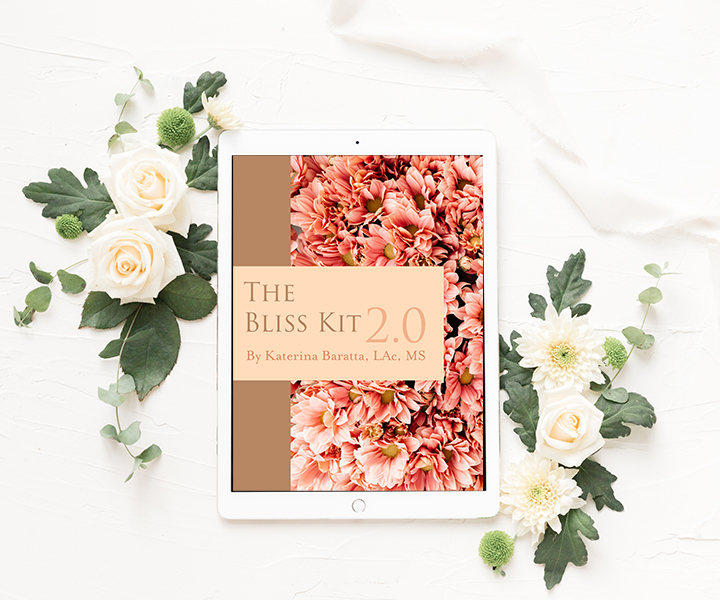How to Manage Anxiety Holistically
In this article, we’re going to answer a fundamental question to help you manage anxiety: Where is your anxiety is coming from?
Because until you know what’s causing your anxiety, you’ll just be taking shots in the dark to try to heal it. Then, once you understand where your anxiety is coming from, keep reading to learn 10 science-backed ways to manage anxiety (that aren’t talk therapy, pharmaceutical medication, or meditation.)
Why not talk therapy, Pharma meds, or meditation to manage anxiety? Aren’t they the most popular strategies?
Yes, they are, and that’s exactly why we’re not going to waste any time on them here.
You can easily find information about the pros and cons of each of those strategies by doing a simple Google search (including this article). Maybe you’ve even tried them yourself. Either way, they’re old news.
What you’re going to learn here are 10 alternative and proven strategies to manage anxiety that haven’t caught on yet in the mainstream, but are still highly effective.
Just because they aren’t popular doesn’t mean they aren’t powerful!
These strategies have transformed the lives of countless people who have struggled with anxiety, including my own. And while they won’t all apply to you, I’d bet you a cookie that you’re going to find something in here that will shift your experience of anxiety in a positive direction.
Where does anxiety come from?
Anxiety is a response to stress, and stress originates in 2 places: the body and the mind.
Physical stress happens when your body’s optimal functioning is under threat.
This could be from something as obvious as a bus barreling at you to something as subtle as a food sensitivity.
Stress happens in the mind when a threat is perceived, whether or not it’s a physical reality, and this threat doesn’t even have to be life-threatening. The only qualification is that you want one thing to happen and believe something else is happening.
“Stress is caused by being ‘here’ but wanting to be ‘there’.” – Eckhart Tolle
Interestingly, your body can’t tell the difference whether your stress is coming from the body or the mind. The physiological response is the same.
Norepinephrine and epinephrine (a.k.a. adrenalin) start circulating.
Your heart rate and blood pressure go up, blood flows to your muscles and your muscles tighten, your breath becomes fast and shallow.
Your digestion slows down as energy flows to your brain so you can become highly alert and vigilant.
These are all adaptations designed to help you handle life’s challenges, and they’re very useful in the short-term. But if the exposure to stress is intense, repetitive, or prolonged —or even just perceived to be— then the system starts breaking down, and this is when anxiety shows up.
Anxiety happens when your mind perceives stress and tries to problem-solve its way out.
This mechanism isn’t all bad, because it’s attempting to protect you from experiencing pain in the future. But anxiety isn’t ever just about the situation you’re in, it’s actually about the stress you experienced in the past.
See, anytime you find yourself in a stressful situation that you can’t escape or fully process afterwards, that stress gets lodged in your nervous system as a pattern.
From then on, any time you encounter a similar situation, that neural pattern lights up and gets activated. And when this happens, it means that you can no longer see the situation in front of you clearly, you’re interpreting it based on your emotional memory of past events.
So in order to manage anxiety effectively, 3 things need to happen.
First, physical stressors have to be reduced.
If your body is stressed because you’re not getting enough sleep, exercise, or your body isn’t getting the right balance of nutrients, then you’re going to be a lot more sensitive to any external stressors that come your way.
The second thing makes a huge difference in managing anxiety is giving yourself the opportunity to process the stress that happened to you in the past.
Yes, talk therapy can be very helpful for this, but unless there’s a physical component to the therapy, it usually isn’t enough.
Because the stress response happens in your body. Those neurological patterns run through your body, and until you learn how to feel safe in the presence of that stress, you’re going to keep feeling anxious.
You can think about it all you want, but the stress won’t transform until your body learns how to relax again.
And finally, it’s helpful to disengage from the stories in your mind.
Thoughts are great for problem-solving, but in order to manage anxiety, you have to be able to perceive thoughts as suggestions rather than truth.
Because when your stress response is activated, all your mind can do is to try to identify the problem and look for solutions. Which means that if you’re experiencing stress in your body and there is no obvious external threat present, your mind will create one in an attempt to grasp at control.
Your mind can only tell you what it knows, and what it knows is entirely based on your perception of the past, which was and continues to be extremely limited.
Just think of all the people on this earth, the ones who are alive now and the uncountable number that came before us. Every single one of these people has their own unique experience in the world, and a unique perspective and interpretation to go with it.
To complicate this even more, every single one of these perspectives and interpretations are based on memories of the past, and memory is infamously faulty.
The only thing you can ever really know is the experience you’re having right now.
And while you can thank your mind for its attempt to guide you, the truth is that a large proportion of your thoughts aren’t actually solving any problems. Many are doing the opposite, making things worse for you because they aren’t based on a clear, calm, and present reality, (hello anxiety!)
Self-inquiry is the best way I know to get out of this nightmare.
The more you practice observing and questioning your thoughts, the easier it is to see them as suggestions rather than truth, and the more you can steer your thoughts into calmer waters instead of letting your anxious thoughts steer you into a storm.
Now you understand a bit more about where your anxiety is coming from.
Here’s what you can do to start healing.
10 Science-Backed Holistic Strategies to Calm Anxiety
Learn to manage anxiety by addressing the root of what’s causing it in the first place.
Reduce physical stress to reduce anxiety
1. Optimize sleep
Sleep deficiency has been linked to anxiety, but anxiety can also make it harder to get good sleep.
Some strategies that can help you sleep better include sticking to a consistent sleep schedule, lowering the temperature in your bedroom, getting black out curtains, and avoiding overhead lights an hour or two before bed.
Related: Anxiety and Insomnia: How to Get More Sleep When Your Mind Won’t Shut Up
2. Exercise
Exercise has been shown to be an effective treatment for anxiety, especially when combined with other therapies.
In particular, rhythmic, aerobic exercises like jogging, swimming, cycling, and walking, seem to be the most effective. This is because they help the body release endorphins, improve blood circulation in the brain and have an impact on the physiological reactivity to stress.
3. Interact with nature
Research is confirming what many of us intuitively know: spending time in nature has a huge impact on wellbeing.
A review published in 2019 in Science Advances shared evidence that contact with nature is associated with increases in happiness, subjective, well-being, positive, affect, positive social interactions, a sense of meaning and purpose in life, as well as decreases in mental distress.
4. Check for food sensitivities
Food sensitivities are not the same as food allergies.
Food allergies can cause immediate and often dangerous allergic reactions, like swelling, hives, and throat constriction.
Food sensitivities, on the other hand, can take up to 48 hours before symptoms appear, and these symptoms are generally more subtle, like joint aches, headaches, IBS, and anxiety.
The best way to identify food sensitivities is by doing an elimination diet and with the guidance of a trained holistic practitioner. Let me know if you’re interested in getting this kind of support.
5. Improve gut health
The microbiota in your gut have a direct impact not just on digestion and the immune system, but on your nervous system and mood, too.
A 2017 review published in the journal Clinics and Practice found that “dysbiosis and inflammation of the gut have been linked to causing several mental illnesses including anxiety and depression,” and suggested the use of probiotics as a possible remedy to restore normal microbial balance in the gut.
But you don’t have to take a supplement the rest of your life in order to heal. Food is often the best medicine, and you can improve your gut health simply by eating more pre and probiotic foods.
Learn more here: Gut Healthy Foods: Prebiotic vs. Probiotic, What’s the Difference?
6. Keep blood sugar stable
Have you ever been hangry? Or maybe you get lightheaded easily when you haven’t eaten for a while?
If so, you know firsthand how important it is to keep blood sugar stable.
A growing body of evidence suggests that there is a direct relationship between anxiety and blood-sugar imbalance. This is because the brain’s biggest source of energy is glucose (sugar), so when blood-sugar is low, the brain sends out an alert signal that can make you feel anxious.
To keep your blood sugar stable, avoid processed foods (including white flour and sugar) as much as possible, and increase your intake of protein, fiber, and healthy fats like olive oil.
7. Herbal medicine
Herbal medicine has been used for thousands of years to restore optimal function in the body and reduce anxiety.
Click here to learn the best herbs to treat anxiety.
Release stored stress that’s causing anxiety
8. Shaking
When a bird flies against a window and lands on the ground , what does it do before it flies off again? It shakes.
Shaking is a natural mechanism that helps our bodies release stress and avoid psychological trauma, but because it looks kinda funny and isn’t socially accepted, most of us suppress the urge to shake when it comes up.
Dr. Peter A. Levine has dedicated his professional career to developing the naturalistic and neurobiological approach to healing trauma called Somatic Experiencing®, and has written books like In an Unspoken Voice, where he talks at length about the benefits of shaking.
And Chinese medicine practitioners have been using shaking to heal anxiety and other dis-ease for millennia before him.
Learn more: How to Release Trauma That’s Trapped in Your Body
9. Acupuncture and bodywork
From a Chinese medicine perspective, anxiety happens when the life-force energy of the body isn’t flowing optimally.
A key characteristic of life is movement, and it is said that when there is no movement, there is pain. And this pain can be physical, emotional, or both.
Because where do you feel your emotions? The body, and emotions are simply energy that is moving through the body.
Acupuncture and bodywork have long been used to regulate and restore the flow of energy in the body and offer relief from physical and emotional pain, including anxiety.
Although modern biomedical studies have focused on acupuncture and bodywork’s efficacy for physical pain, evidence is starting to appear that they can be helpful in treating anxiety and other mental health disturbances, too.
Learn to take anxious thoughts less seriously
10. Self-inquiry
Have you ever tried to make intrusive thoughts go away?
Yeah, it doesn’t work.
The more you push against your thoughts (and emotions, for that matter,) the stronger they become.
“I don’t let go of my stressful thinking—I question it. Then it lets go of me.” -Byron Katie
Self-inquiry has been shown to give you direct access to a broader perspective than the one that’s keeping you trapped feeling anxious. There are many methods to chose from, but my favorites are The Work by Byron Katie and The Sedona Method.
Related: Let Go of Negative Thoughts with These 3 Questions
Your way of managing anxiety is unique to you
Some of the strategies on this list will make a huge difference for you. Some will work now and not later. Some will work later but not now.
The best way to manage anxiety is to explore your options, and it can be helpful to have the guidance of a trained holistic practitioner to find the best, customized solutions for you.
Want to learn more about holistic mental health consultations? Curious if we’d be a good fit?
Email me your story and set up a session. I look forward to hearing from you!





